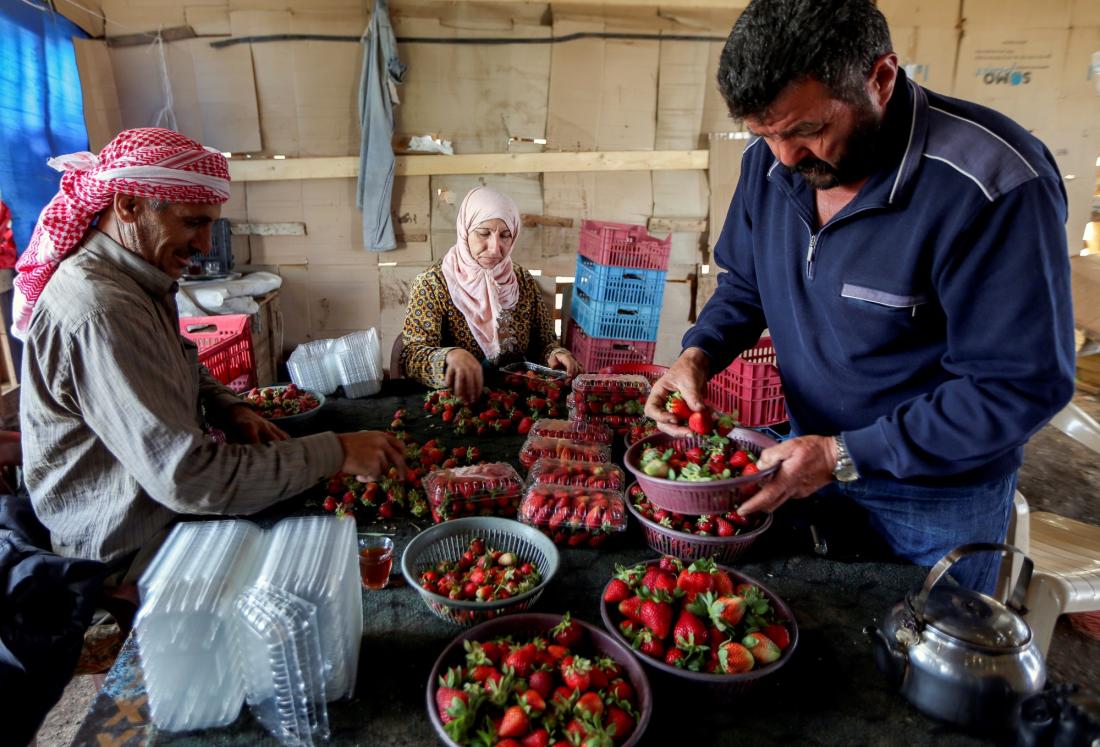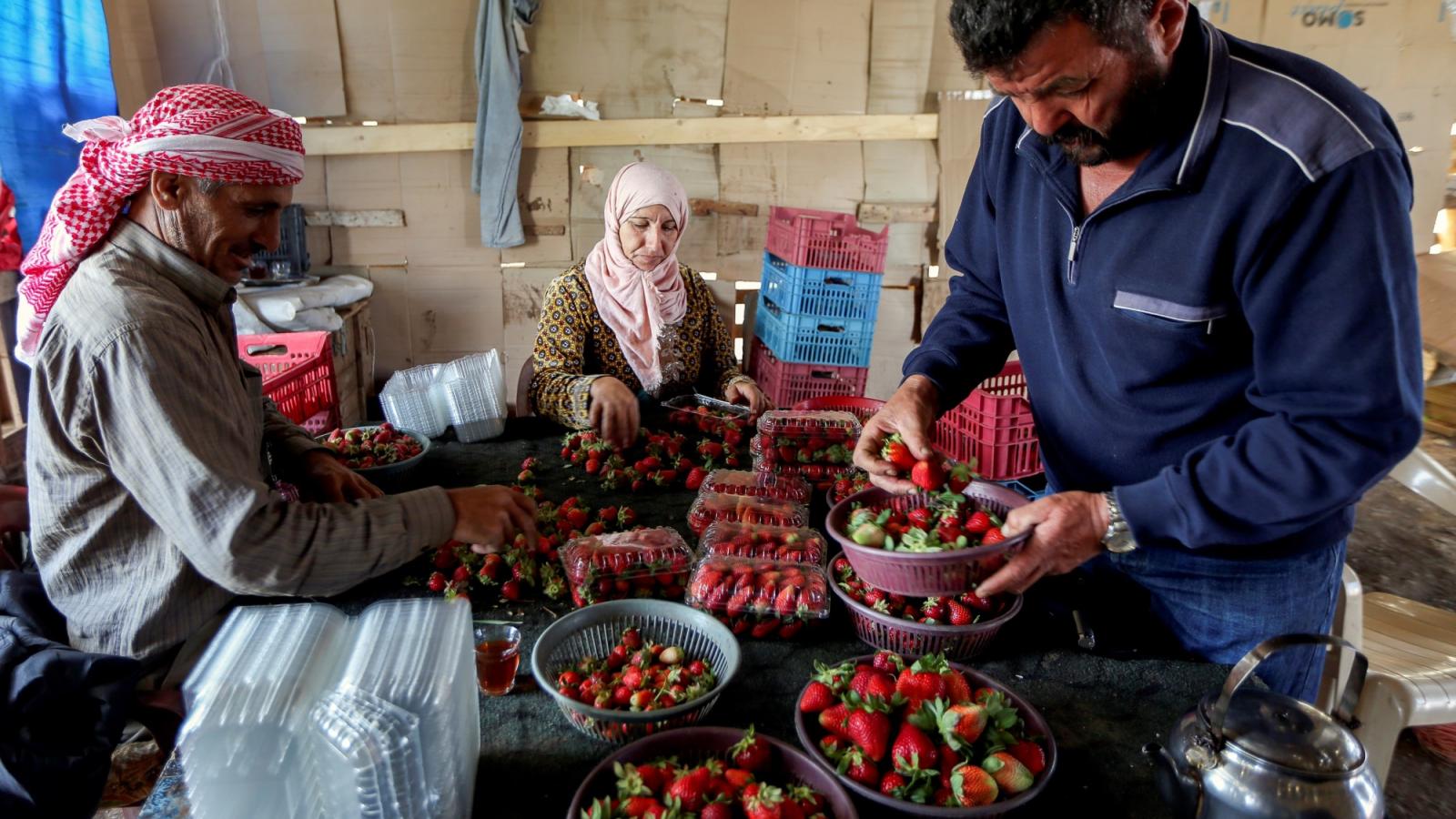ORGANIC ECOSYSTEM: an example to promote organic agriculture in the Mediterranean region

Going organic!
Going organic is not only trendy. It is good for us and for our planet. Organic products are healthy as they do not contain toxic chemicals, are not genetically modified, contain fewer synthetic fertilizers, etc. It is good for nature as it helps preserve the biodiversity, keeps a more fertile soil. Adding to that, organic agriculture uses less water and energy.
A structure for a Mediterranean organic agriculture?
At the European Union level, regulations exist and the latest one entered in force on 1st January 2022 tackling organic production and labelling of organic products (Regulation (EU) 2018/848).
However, addressing Mediterranean organic agriculture including partner countries located outside the European Union is much more challenging as each country has its own characteristics, legislation and pace to introduce regulation and certification methods to guarantee reliable organic production.
One of the initiatives towards boosting and supporting a Mediterranean organic agriculture value chain was the establishment of an institutional network of Ministries of Agriculture, the Mediterranean Organic Agriculture Network (MOAN) in 2006. It gathers representatives of Ministries of Agriculture from 24 countries all over the Mediterranean. Its secretariat is based at the International Centre for Advanced Mediterranean Agronomic Institute (CIHEAM) in Bari, Italy.
This institute together with the Jordanian Ministry of Agriculture form part of an EU-funded project called ORGANIC ECOSYSTEM (“Boosting cross border Organic Ecosystem through enhancing agro-food alliances”). To better understand the state of organic agriculture in the Mediterranean region, we interviewed two partners involved in this project: Mara Semeraro (CIHEAM-Bari) and Tamam Al-Khawalda from the Jordanian Ministry of Agriculture, organic agriculture division, which is the lead beneficiary of the project.
Main constraints of Mediterranean organic agriculture
According to Mrs. Semeraro, the main constraint is the lack of a constant political, financial and strategical support at Mediterranean level that takes into account the diversities and needs of each country. In this context, the fact that a network has been created through ORGANIC ECOSYSTEM to include not only ministries of agriculture but also farmers, certification bodies and even consumers is something that has to continue to overcome the lack of a common methodology.
While Mrs. Al-Khawalda highlights other obstacles.
From the producer point of view, the price of inputs (i.e., fertilisers) and the cost to get the certification of organic products are so high that it discourages farmers to go organic. For example, in Jordan, a farmer would need to pay about 1,000 Jordanian dinars (JOD) (1,293 €) to get the certification. The average salary of a Jordanian farmer is about 375 JOD per month (491 €).
Form the consumer perspective, very few people are willing and can afford paying 3 to 4 time the price of regular products to get organic ones. For instance, one kilo of tomatoes would cost around 0,5 JOD and organic one would be around 1.5 to 2 JOD/ kg.
In Italy and probably in other European countries, although organic products witnessed a boom right after the lockdown due to COVID-19 and an increasing awareness about healthy food, this tendency is not that significant anymore with a nearly 10 % inflation hitting households’ budget since a year.
What can be done to improve and promote organic agriculture in the Mediterranean?
At macro regional level, the key point is to try to harmonize the regulation. This will help the organic market especially knowing that we are dealing a lot with imports and exports between Mediterranean countries.
At national or more local level, ministries and relevant authorities should promote the creation of cooperatives so that farmers gather and reduce the cost of certification.
In a region marked with high unemployment rate and a very young population especially in the Middle East and North Africa (MENA) region, incentives should be proposed to young people: facilitate the procedures to own a piece of land, get organic seeds, assume cost related to access to water (digging wells) together with the technical experience of agronomists who can support farmers in organic farming techniques.
Unfortunately, although international organisations fund programmes to promote organic agriculture in the region, there are too many cases of failure as the farms closed once the fund stops. For example, in the case of a project in Jordan that supported financially 55 farmers, after 4 years, when the project closed, only 10 remains (18 %).
It is of utmost importance to direct the funds to the right people and ensure effective sustainability plans beyond the project´s closure.
ORGANIC ECOSYSTEM´s contribution to Mediterranean organic agriculture
Through this project, three main results are worth mentioning. First, a network has been created as a pilot action and include farmers and cooperatives in countries involved in ORGANIC ECOSYSTEM project, to enlarge the Mediterranean Organic Agriculture Network (MOAN) to other organic stakeholders. This is the result of many analysis and interviewing relevant stakeholders in each participating country of the project.
Second, a big work of matching has been done to match farmers with innovators/ SMEs as well as matching cross border partners. Third, the creation of business alliances enabled farmers from different Mediterranean countries meet, exchange and collaborate together. Within the project, field visits were organised where for example, Jordanian operators (farmers, agri-food processors) went to Italy to get to know what is being done there and to exchange best practices and ideas.
To sum up, this cross-border cooperation helped increase the work capacity of all involved people. All partners shared one methodology but each one developed its activities respecting the experience of its country.
Discover more about the project: ORGANIC ECOSYSTEM










